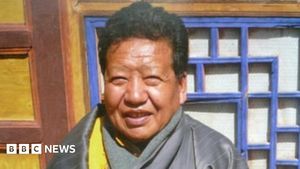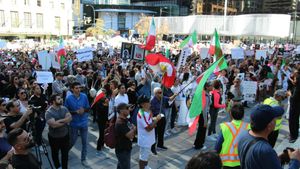On March 15, 2024, the Daegu City Council's Anti-Corruption Committee Meeting attracted a significant crowd, as local citizens gathered to express their concerns about corruption within the city's administrative fabric. The event, held at the City Council building, emphasized the importance of accountability, transparency, and the implementation of ethical governance initiatives.
Attending the meeting, Daegu's Mayor, Kim Hyun-soo, opened the session by acknowledging the crowd's presence. He stated, "The voices of the citizens are imperative as we confront the challenges of corruption. We are committed to ensuring your concerns are heard and addressed through actionable reforms." His remarks set the tone for the meeting, underscoring the council's dedication to combatting corruption.
Among the attendees were various council members who reiterated the city's commitment to enacting measures aimed at increasing transparency. Councilman Park Ji-sung stated, "We aim to work hand-in-hand with our community to develop policies and mechanisms preventing corruption and fostering trust between the citizens and the administration." The council also unveiled its plans for digital transparency initiatives, including real-time access to council meetings and budgets.
Community leaders took to the mic to voice their grievances, with several emphasizing the role of citizen engagement in shaping government policies. Lee Min-jae, a local activist, passionately declared, "Today’s turnout shows the strength of our community's resolve to present truth and integrity within our local government. We will not stand by as corruption erodes the trust between the people and their leaders." His words echoed the sentiments of many individuals present at the meeting, reinforcing the collective demand for accountability.
Several citizen groups stepped forward with specific instances of alleged corruption. Detailed reports showcasing bureaucratic malfeasance, embezzlement, and unethical practices were presented before the committee. Notably, Shin Ae-ran, representing the Daegu Civic Alliance, called for independent investigations, stating, "We need to prioritize the people's right to know the truth behind the allegations against our leaders. This city deserves to thrive without the shadow of corruption looming over us."
The turnout at the meeting itself is noteworthy—more than 1,500 residents attended, creating one of the most significant public gatherings seen for city-level governance. Council officials stated it might be the largest audience for committee meetings since they were established as part of Daegu's governance reforms. Residents voiced their support and shared their personal experiences with corruption, showcasing the community's collective will. This assembly is seen as pivotal for Daegu, signifying citizens' empowerment and active participation in pushback against administrative transgressions.
The growing awareness around corruption issues has also inspired younger constituents to make their voices heard. High school student Hong Se-yeon, who attended the meeting with her classmates, expressed her dissatisfaction with current local politics. "Seeing so many people care gives me hope. We must reshape how our government operates if we want to see real change," she noted. This viewpoint mirrors the broader trend among the youth, generating conversation around political engagement and responsibility.
Outside the venue, activists and local citizens held placards and banners demanding accountability. Shouting slogans of change, they drew attention to the need for reparations and reforms at the local level. The sight of numerous grassroots movements showcases how significant events like this meeting mobilize the population, creating vibrant dialogues around governance.
Local news outlets covered the meeting extensively, focusing on the committee's commitment to reform and citizen engagement. A journalist from the Daegu Daily reported, "The sheer number of citizens engaged at this meeting indicates not only their dissatisfaction with corruption but their determination to effect change. This collective effort is the hallmark of a thriving democracy." The coverage examined the town’s prevailing mood, indicating the populace's refusal to tolerate corruption any longer.
Reflections from community members also highlighted optimism for future progress. Many expressed hope for continued civic involvement, where citizens continue to drive the narrative surrounding governance and administration. Activists like Kim Tae-woo emphasized the importance of the meeting as it fortified public resolve: "Change begins with us, and today, we stand stronger together, prepared for the challenges we face."
Conclusively, the Daegu City Council's Anti-Corruption Committee Meeting signified more than just formalities over governance. It showcased the collective strength of the citizens to unite against corruption, advocating for ethical practices and transparent leadership. The future commitment by city leaders to engage with residents reinforces the notion of democracy rooted deeply within the voices and actions of its constituents.



